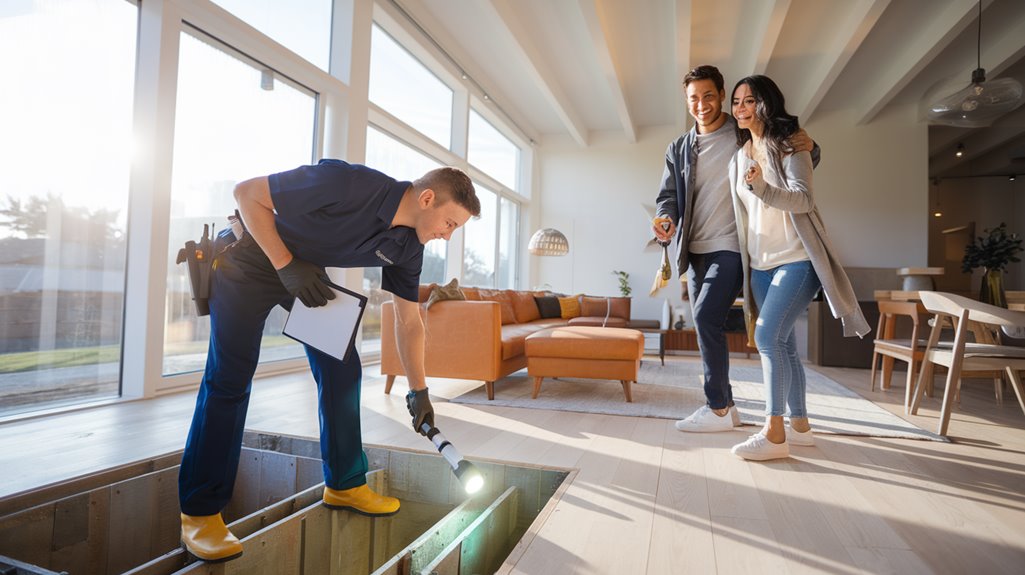Your home checkup can help you save money before you buy. Think of it like going to the doctor, but for a house. You'll spend about $300-700 for someone to look at the whole house. Extra tests cost more – like checking for bad air ($100) or bugs ($200). Walk with the home inspector to see what they find. This helps you learn about any problems with:
- The house's bones
- Wiring
- Heating and cooling
- Water pipes
Take lots of pictures. Ask good builders how much fixes will cost. This gives you power when you talk about the price. If the house needs work, you can ask the seller to:
- Fix the problems
- Lower the price
- Give you money at closing
The more you know, the more you can save.
Ready to start building equity in your own Michigan home? Get your personalized home loan quote today.
Understanding Home Inspection Costs
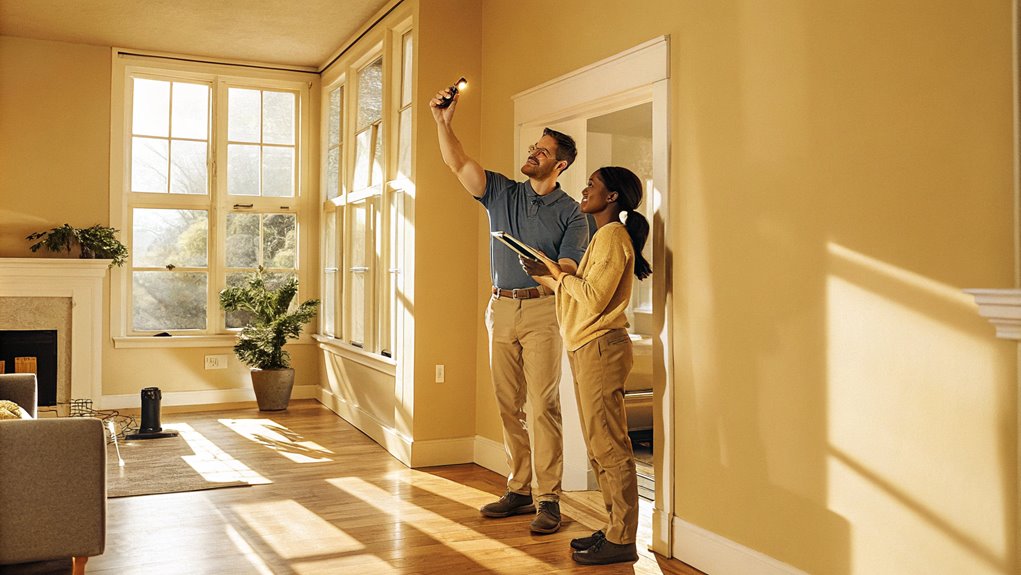
Your home needs a checkup before you buy it. This is called a home inspection. Think of it like a doctor's visit for your house.
The cost runs from $300 to $700. Big cities cost more than small towns. Big houses cost more than small ones.
You may need extra tests. Want to check for radon gas? That costs $100 more. Worried about bugs? Add $200 for a bug check.
If the house needs fixes, you'll want the inspector to look again. This costs about $100 more.
Some inspectors charge less if you're buying a building with many homes in it.
Many people pick the cheapest inspector. But the best ones have special training. They look harder and find more problems.
Michigan residents, unlock the door to your new home. Request your home loan quote from Treeside Financial today.
Key Areas Inspectors Examine
Your home check is like having a doctor look at your house. The inspector walks around and checks all the important parts.
First, they look at big things like the base of your house, its walls, and roof. They want to make sure nothing is broken.
They test all the lights and plugs to keep you safe. Your home's heating and cooling get a close look too. They make sure warm and cool air flow well.
The inspector checks all water pipes to spot any drips. They look at how water flows in sinks and tubs.
Outside, they walk around to see if rain can flow away from your house. They check the walls and windows from the outside.
Inside, they test things like your stove and fridge. They also make sure doors and windows open right. They even check if your house stays warm in winter.
Red Flags During Inspection
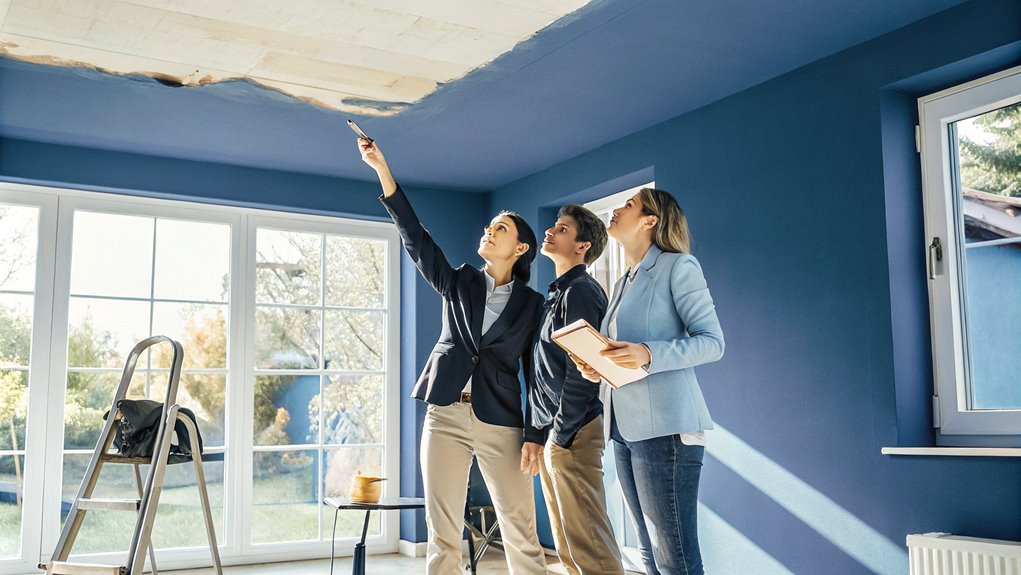
When you look at a house, watch out for big cracks in the base, lots of water stains, or weak walls that hold up the house. These problems make a home unsafe and cost a lot to fix.
Stay away from homes with bare wires sticking out, gas smells, or black mold – these things can hurt you.
Also check if parts of the house were built without the city saying it was OK. Bad air flow or missing fire walls between rooms are signs of bigger issues.
These problems can make it hard to get home insurance or sell the house later.
Major Structural Issues
Your house needs to be strong and safe. When you get your house checked, some big problems need to be fixed right away.
Look for big cracks in the base of your house. Check if the floors aren't flat. See if walls are bent or have cracks. These mean your house mightn't be safe.
Water in the basement is bad for your house. It can make the base weak. Look at your roof to see if it sags. Watch if doors get stuck. When walls pull away from each other, this isn't good.
If the person checking your house finds these things, you need help. Ask an expert to look at your house before you buy it.
Safety Hazards and Code
Safety problems in a home need to be fixed right away. You want to keep your family safe and protect your money. Let's look at what you need to check:
Bad wiring can start fires. You need a trained person to fix it.
Loose or weak rails can make people fall. They must be fixed now.
Bad air can make you sick. Put in alarms to warn you.
Check all wires in the house. Old or wrong wiring can burn your home. Look at work done in basements and attics too. Make sure past owners did the work the right way. Ask to see papers that show the work was done safely.
| Problem | What To Do |
|---|---|
| Bad Wiring | Call a wire expert |
| Weak Rails | Put in new, safe rails |
| Bad Air | Put in alarms and vents |
Common Repair Negotiation Strategies
When you get your home checked, you can talk to the seller about fixing things. Start with the big problems first – like if the house might fall down, has bad wiring, or leaky pipes.
Don't worry too much about small stuff like paint or scratches. You can ask the seller for money to fix things instead of having them do the work. This way, you pick who fixes your house and how they do it.
You can also group small fixes together when you talk to the seller. If they say no, focus on the things that keep you safe in the house.
It helps to find out how much repairs will cost. Ask workers to tell you the price for each fix.
When big fixes cost a lot, you can ask the seller to pay half. This shows you want to work together to solve the problem.
Finding a Qualified Inspector
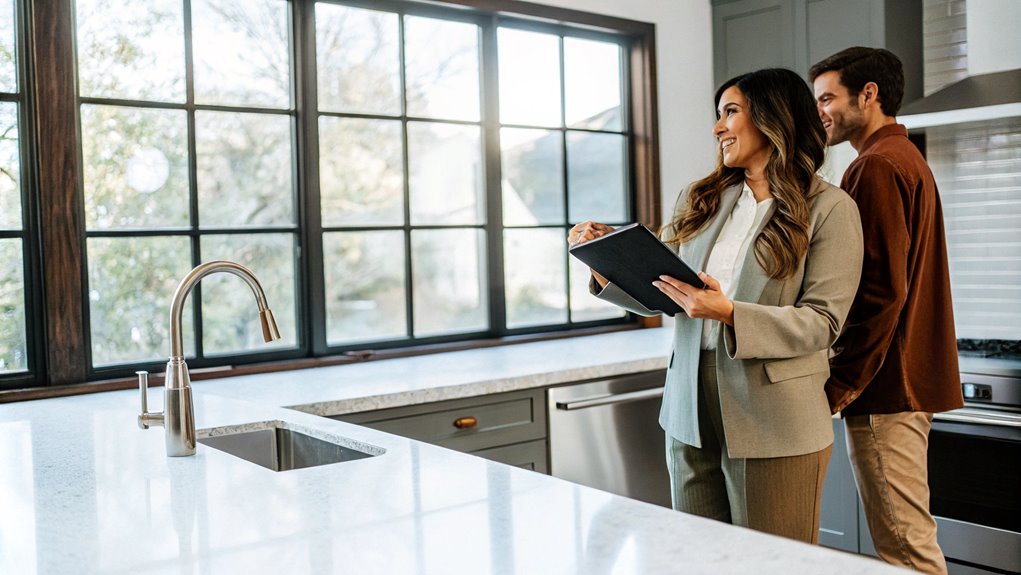
When you want to find a good home inspector, start by checking if your state requires them to have a license.
Make sure any inspector you pick has the right papers to do the job.
Look for ones who belong to trusted groups like ASHI or InterNACHI.
Ask how many homes they've checked and how long they've worked as an inspector.
It helps to pick someone who knows about homes like the one you want to buy.
Check State License Requirements
Finding a home inspector means checking what your state needs them to know. Each state has its own rules.
Look for these key things:
- Does the inspector have a current license?
- How much training do they have?
- How many homes have they checked?
- Do they have insurance if they make a mistake?
Call your state office to make sure an inspector is allowed to work. Even if your state doesn't need inspectors to have a license, look for ones who belong to groups like ASHI or InterNACHI. These groups make sure inspectors do good work.
State Rules | What You Need to Know
————|———————
License | Is it current and real?
Training | Did they learn what they need to?
Work History | Have they checked many homes?
Insurance | Can they fix their mistakes?
Remember: A good inspector helps keep you safe in your new home.
Research Professional Certifications
When you pick a home inspector, look for someone who keeps learning and growing in their field. A good inspector joins groups like ASHI or InterNACHI. These groups make sure inspectors learn a lot and stay up to date.
Think about what your area needs. If you live where termites are common, pick someone who knows how to spot them.
Some inspectors also know about testing for radon, finding mold, or checking air systems. This helps them find more problems.
Make sure to check if their badges and training are still good. You can look this up on the groups' websites to be sure they're active members.
Compare Experience and Expertise
Home inspectors are all different. Some are new, while others have worked for many years. You want to pick someone who knows how to check homes like yours.
When you look for an inspector, make sure they:
- Have done at least 1,000 home checks
- Know about homes that look like yours
- Have worked on houses before as a builder or fix-it person
Ask them what they know best. Some are good at checking heaters. Others know a lot about wiring. This helps when you want to buy an old house or one with special parts.
Remember: A good inspector is like a doctor for houses. They spot problems others might miss.
Essential Questions to Ask
When you meet your home inspector, bring a list of questions to help you learn about your future home.
Ask them when big things will need to be fixed – like the air system, roof, and hot water tank. You'll need to know how bad any problems are and how much they cost to fix.
Ask about wet spots and if the house is sinking. Make sure the power system can handle your needs.
Look for signs of bugs, mold, or weak walls. Ask if the pipes leak or get backed up. Find out what the pipes are made of too.
In old homes, ask if there are bad things like old paint that could make you sick.
Last, ask which fixes you need to do right away and which can wait.
Attending Your Home Inspection
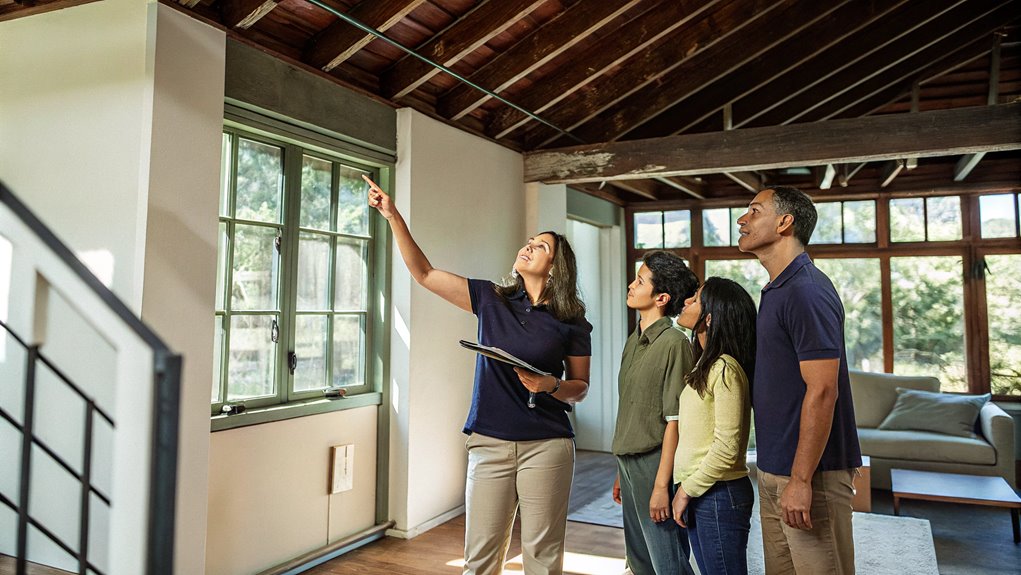
You should go with your home inspector when they check out your new home. It helps you see any problems right away. You can also ask questions as you go along.
When you're there with your inspector:
- Write down what you see and take pictures of broken things that need to be fixed.
- Stay close to your inspector and learn how things in the house work.
- Ask how bad any problems are and how much they might cost to fix.
Put on comfy clothes and shoes. You'll need to walk and crawl in small spaces to see the whole house.
Decoding the Inspection Report
Your home inspector found things you need to know about. Some problems are big and can hurt you or damage your house. Other problems just make things look bad.
Think about which fixes you need right now to stay safe, like bad wiring or a weak floor. Then look at what needs repair soon, like a leaky roof.
Last, look at things you want to fix to make your home look nicer. When you know what matters most, you can talk better with the seller about what they should fix.
Red Flags Vs Cosmetic
Let me tell you about home problems that are big deals and small deals.
Some problems in a home need to be fixed right away. We call these red flags. Other things just need a fresh look. We call these cosmetic fixes.
Red flags are the scary stuff. Think of them like when you're sick and need to see a doctor fast. These are things like:
- Big cracks in the house floor or walls
- Bad wiring that could start fires
- Leaky pipes that make puddles
Small fixes are like getting a haircut or new clothes. They make things look better but aren't super important. These include:
- Chipped paint
- Old rugs
- Outdated sinks or lights
When you look at a home, don't worry too much about the small stuff. Focus on the big problems that could hurt you or cost lots of money to fix later.
Estimate Repair Costs Fast
Getting repair costs doesn't have to be hard. First, look up prices on websites like HomeAdvisor or Angi. They show what things cost where you live.
Make a simple list with three price points – low, middle, and high. Add 20% more to your high price just to be safe.
Don't forget about permits! They can cost $500 to $2,500 for big fixes.
You can save money by fixing similar things at the same time. Many workers will give you a better price. You can also save by doing repairs when fewer people need work done.
Start with the most costly fixes first:
- Foundation problems
- Roof repairs
- Electric issues
- Plumbing work
These big repairs matter most when you need to know costs fast.
Deal Breakers Vs Minor Issues
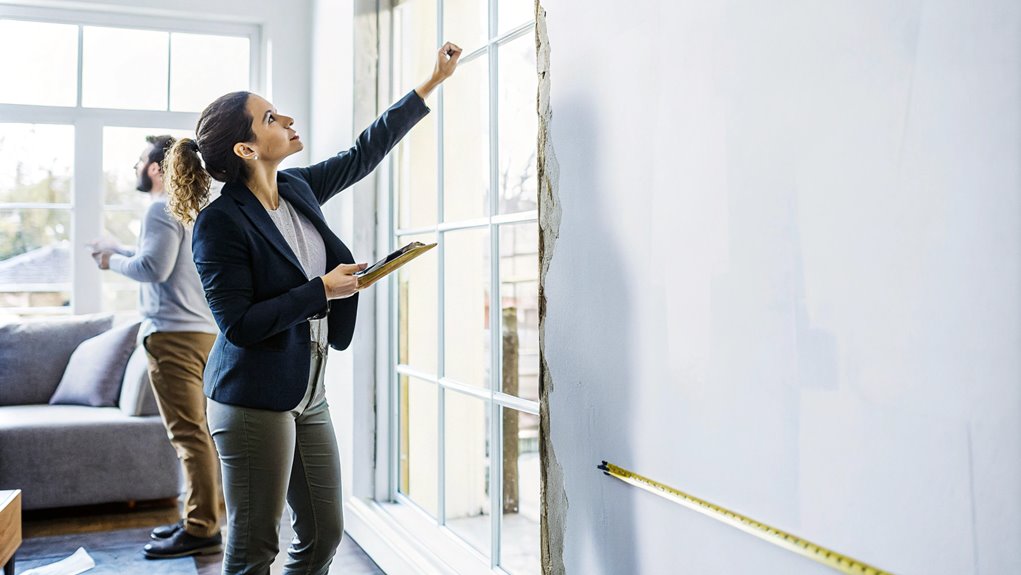
When you look at a home inspection report, you need to know what problems are big and what ones are small. This helps you decide if you want to buy the house.
Big problems that might make you walk away include:
- Cracks in the walls or floor that make the house unsafe
- Lots of water damage
- Bad electrical wiring that could start a fire
When you look at problems in the house, think about:
- Is it safe to live there?
- Can you afford to fix it?
- How old are things like the air conditioning and roof?
Small problems shouldn't stop you from buying a house you like. These might be:
- Loose door handles
- Old caulk around sinks
- Small marks on walls
If the main parts of the house are good, these little fixes are okay. Just make sure the big, important things work well before you buy.
Repair Cost Estimates
When you get your home inspection, you'll find things that need to be fixed. Some fixes cost a little, others cost a lot. This will help you decide if you want to buy the house and how much to offer.
Big fixes need experts to tell you the real cost. A new heating system costs $5,000 to $10,000. A new roof costs $8,000 to $20,000. Fixing the base of the house costs $2,000 to $15,000.
For small fixes, you can look up prices online. Remember that costs change based on where you live. Workers and parts cost more in some places than others.
Make a list of all the fixes you need. Write down the lowest and highest price for each one. This helps you:
- Know which fixes to do first
- Talk about prices with the seller
- Plan for how much money you'll need
Negotiating With Inspection Results
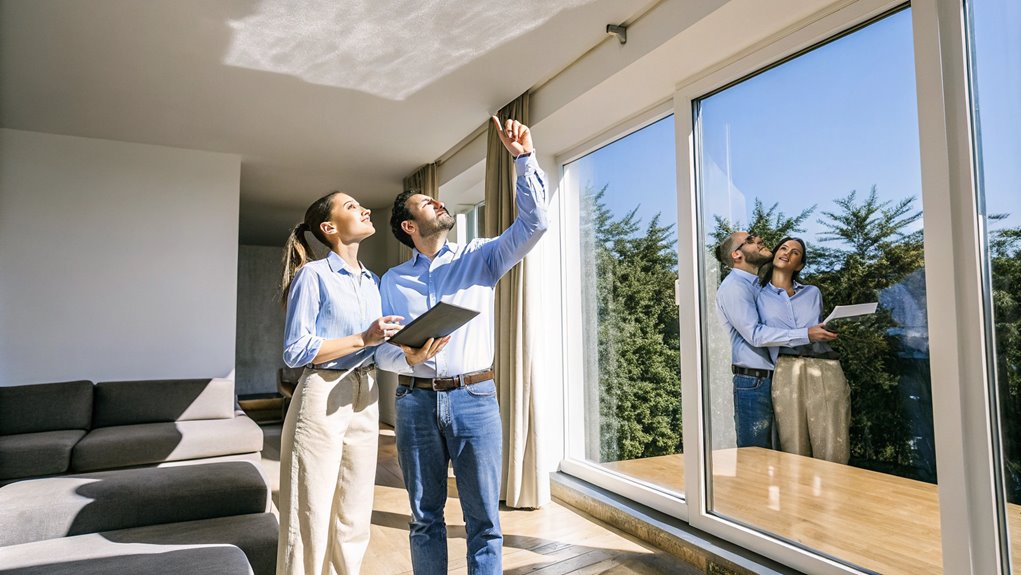
After you get your home checked, you have two main ways to talk about fixes.
You can ask the seller to fix things before you buy the house. This means the work will be done, but you might worry about how well they fix it.
Or you can ask them to lower the price or give you money to fix things yourself. If you get the money, you can pick who fixes your house and how they do it, but you'll need to handle all the work after you buy it.
Price Reductions Through Repairs
When you find problems in a home inspection, you can ask for a lower price. Here's how to work with the seller to agree on a fair price:
Get repair costs from experts. Ask them to look at big problems like:
- Bad walls or floors
- Broken electric wires
- Leaky pipes
- Heating and cooling issues
Show these costs to the seller. Tell them how these fixes will cost money and affect the home's worth.
You can ask the seller to give you money at closing instead of fixing things. This lets you pick who does the work and make sure it's done right.
Focus on the big problems that make the house unsafe. Don't worry too much about small things like paint or carpet stains.
Remember to be nice when you talk about repairs. Working together with the seller helps both of you get what you want.
Seller Credit Deal Points
When you find problems during the home inspection, you can ask the seller for money to fix them. This helps you save your cash.
Make a list of what needs fixing, starting with the biggest and most costly items. Ask for money instead of having the seller do the repairs. This way, you can pick who fixes things and how they get fixed.
Get quotes from repair people to show the real costs. Show these quotes to the seller. This works better than just making up numbers.
You can group small fixes together when you ask for money. Focus on big things like heating, cooling, roof problems, or issues with the house base.
Ask for the money early, before your inspection time runs out. This helps you get what you want.
Talk to your bank first about how much money you can get from the seller. Some loans have rules about this.
Seller Credit Vs Price Reduction
Let's talk about getting money back when buying a home. You find problems during the home check, and now you have two ways to get help from the seller.
The first way is getting a seller credit. The second way is paying less for the house. Both help save you money, but they work in different ways.
Seller credits give you money to help pay for closing costs. This means you can keep more of your own money to fix things right away.
When you pay less for the house, your monthly payments go down. But this might change how much money you can borrow from the bank.
The bank only lets sellers give you credits up to a certain amount – usually 3-6% of what the house costs. You can ask for any amount off the price, but this might mean the bank needs to check the house value again.
Pick the way that works best for you. Think about how much cash you need right now and what makes sense for your future.
When to Walk Away
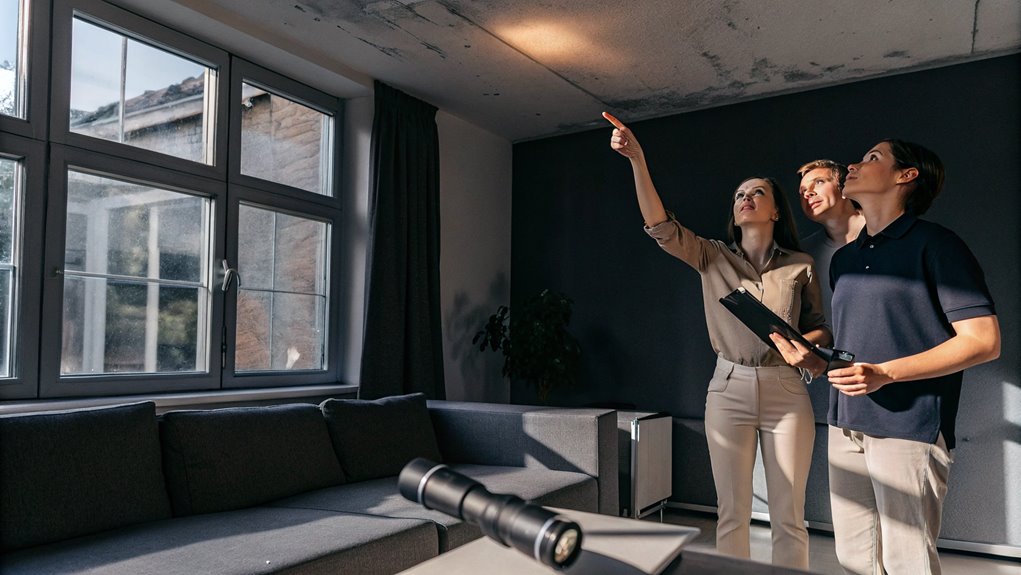
Sometimes you need to say no to buying a house after seeing big problems. If you see broken walls or a bad roof that would cost a lot to fix, it's best to walk away.
Bad signs are things like old, harmful building stuff, lots of black mold, or unsafe wiring.
When the owner won't fix unsafe things in the house, you should think about finding a new one.
Bug damage, weak walls, or water leaks are good reasons to stop the sale.
Think about your safety and your money – you want a house that will be a good home for you, not one that will cost too much to fix.
Follow-Up Inspections Matter
When you look at a house again after repairs, you can make sure the work was done right. You can also check if new problems came up. Make sure to look at the house before you buy it.
First, get papers that show the work is done. Ask for bills and permits from the people who fixed things.
Next, bring back the same person who looked at your house the first time. They know what was wrong before and can tell if it's fixed now.
If you find bad repairs or work that's not done, tell your agent right away. They can help you get things fixed.
Remember – you can still ask for more fixes or money back if the repairs aren't good. This last look at the house keeps your money safe and makes sure you get what you want.
Documentation and Records
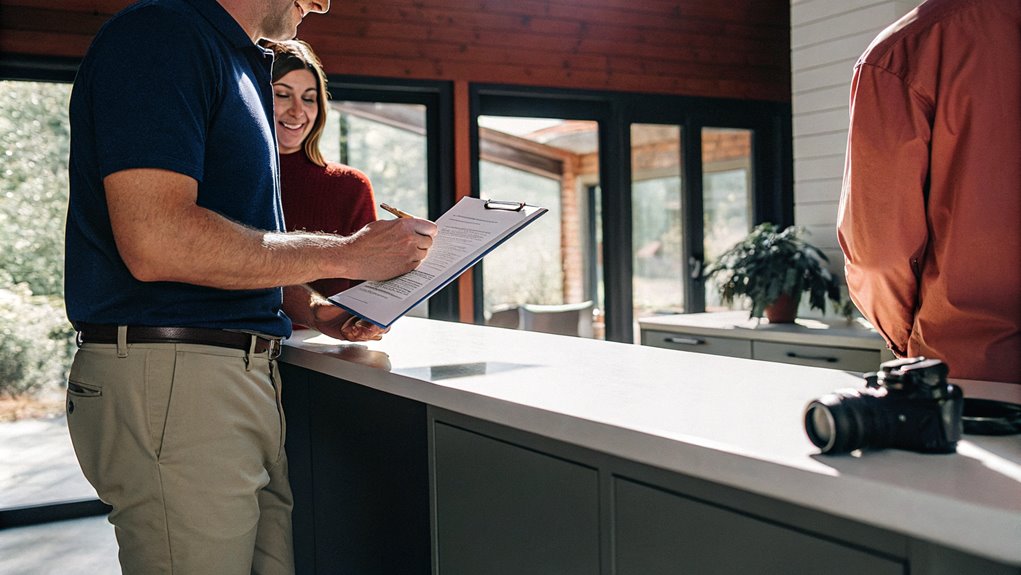
Keep your home's records safe and organized. This means saving all papers about your home. Save inspection reports, repair costs, and notes from sellers. Make copies on your computer and keep paper copies in a safe box.
Make a list of when things happened to your home. Write down when people looked at your home. Write what they found wrong. Write how you fixed those things. Take pictures of problems and repairs.
Keep all papers that show work done on your home. This includes warranties and permits. These papers help you when you want to sell your home. They also help with insurance claims. You can show people you took good care of your home.

